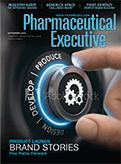The Accelerated Product Launch Reality
Pharmaceutical Executive
Expedited reviews drive new imperative for iteration and quality data that enable agility and results.
The dramatic expansion of FDA fast-track approvals has set a new tone and pace for the pharma product launch process. For decades, patient and advocacy groups, along with doctors, policymakers, and drug companies, have elevated the need for a more streamlined approval process. Under Dr. Scott Gottlieb’s tenure at FDA, these efforts bore fruit with a record-setting 971 generic drugs in fiscal 2018,1 up 3.6% from 937 in 2017-and approval of a similarly record-setting 59 new drugs and biologics in 2018, including 19 first-in-class therapies.2 FDA fast-track programs alone approved a record 43 new drugs last year, vs. 10 expedited drugs, or 38% of the total, approved 10 years ago.3
Inspired by the goal of fostering a more competitive marketplace for life-saving treatments, FDA in recent years also cleared the orphan-drug request backlog and streamlined market entry for digital health tools. Other initiatives, including priority review, breakthrough therapies, accelerated approvals and regenerative medicine advanced therapy (RMAT) also are expediting time-to-market, as the use of real-world data and evidence in drug development sets the stage for longer-term monitoring of in market brands.
This is all good for patients, payers, and the pharma industry. However, pharma brand managers and insights professionals are finding a new fast-track operational reality for product launches.
With accelerated timelines comes limited time to prepare for what often is an increasing number of tasks in the launch playbook. From segmentation, to message testing, to campaigns across more media types-print, broadcast, social-there’s more to do, and less time to do it. Add in competitive pressures from new market entrants-and teams find themselves in a position where the old playbook is fast becoming irrelevant.
This expedited workflow requires a need for more flexibility to prepare for launch if approval comes sooner than expected and has label changes, such as updates to the safety profile.
What’s a pharma executive to do?
Achieving speed through iteration
In today’s environment, teams are finding that they must provide meaningful insights quickly and with agility as they pivot research questions and overall research plans, while gathering new information and forming new hypotheses. By incorporating an iterative, problem-solving framework into the launch playbook, teams create a research process that hones insights, providing a more encompassing approach to learning.
Pre-launch efforts can help assure that launch teams obtain message resonance such that products hit the market well-tuned to prescriber sentiments and able to achieve launch goals.
For example, one of the world’s largest global brands received surprisingly fast approval and needed to quickly complete pre-launch efforts; and due to the unanticipated, shorter launch schedule, several key market needs related to launch were behind schedule. Baseline awareness and usage considerations had to be quantified immediately. Then market sizing, validating segments, positioning considerations, and messaging and concept development needed insights from key audiences. What insights teams would typically get 18-24 months to perform, had to be done in just six months.
Instead of commissioning a multi-month traditional insights initiative to source quantitative data on target audience perceptions, the firm took an iterated approach to obtain honed results with six months to source the same data.
When several unmet needs were identified, and considerations of managed care receptivity needed to be vetted, the firm interviewed prescribers and payers, sourcing their insights in several weeks.
The launch was deemed successful despite the initial timeline requiring nearly two years of research and launch prep, and the team being provided only six months to tackle the launch requirements. By employing an iterative, insights-gathering process, the team completed pre- and active-launch phases in what was considered a significantly faster timeframe than ever before.
The brand’s results corroborate reports from the 2019 State of the Life Science Insights Market report,4 done annually by InCrowd. Respondents-pharma, biotech, and related-agency market insights professionals-report a dramatic increase in the use of shorter market insights efforts, with a 30% overall increase, as compared to longer, more traditional projects that saw a 22% descrease.
New-found agility
An iterative approach helps teams put time back on their side. It presumes that even the most well-informed first concepts are an educated first pass, and assures that by ongoing refinement, those presumptions are tested, honed, tweaked, assessed again, verified, and finally determined of the target audience for launch-where the iteration and honing will continue.
Using this approach, teams learn as they go, find out what questions work and which do not, and adjust along the way. They proceed through the launch process nimbly, course-correcting throughout until they are able, with confidence and with a wealth of leading-edge knowledge, to provide insights and recommendations that drive change and growth.
Iteration implicitly presumes there will be change, an approach aptly tuned to a now faster process delivering data and insights that continually refine results and learning. It avoids cutting corners; obtaining another opportunity to market-test is readily put in place.
Consider how and when iteration can support a more thorough commercialization process (see Figure 1 below):
- Iterate in the new product development process to understand the market, packaging, and pricing, among other areas.
- Iterate on safety feedback from FDA.
- Iterate to bring visibility to unexpected market activity, whether competitive or otherwise, to assure differentiation and optimal emphasis on the targeted condition.
- Iterate to explore last-minute target prescriber feedback.
Click to enlarge

Monitoring the brand post-launch
Once launched, iteration is critical to the ability to understand market-related issues impacting core key performance indicators (KPIs) quickly. The speed of the iterative approach allows teams to optimize the time to respond to these issues, minimizing the impact to the brand.
The two most important KPIs that often determine success for life science brands are efficacy and awareness. Both attributes work to create the product’s brand. Though the efficacy of the brand is a foundational element of how it will be perceived, the awareness efforts that market insight and brand professionals make also have a significant effect on how it will be perceived. As brand managers know, an unhealthy brand is not always related to efficacy. Like any product, poor or misaligned messaging, bad data informing inappropriate interventions, market events unfairly tainting entire segments, and the like can infect market perception of any brand.
Having ongoing awareness, understanding, and expectations of efficacy and awareness levels in real-time, well beyond launch, allows teams to listen to providers and patients, and respond to risks to their brand’s health quickly should teams learn of gaps in product understanding. It underscores the importance of post-launch market insights to ensure the brand trajectory continues in the right direction.
Toward a nimble future
New technologies such as AI, machine learning, and a variety of real-time automation, analytics, and online workflow options show tremendous potential to inject agility and iterative efficiency into product launches. Imagine knowing in advance the strong likelihood of prescriber response to a brand.
While technology evolves toward the ability to inform launches with predictive elements as well as the most fundamental of insights-the voice of the prescriber-brand managers should take heart in the new approaches taking hold today that are rewriting the launch playbook. Those teams that take advantage of the wider array of innovative options available to them are finding that they can better cope with the new product launch realities and master them.

Meghan Oates-Zalesky is senior vice president of marketing for InCrowd
References
1. https://www.psychcongress.com/node/721
4. https://incrowdnow.com/syndicated-reports/2019-state-life-sciences-market-research-industry-report/

FDA Outlines Updated Requirement for Placebo-Controlled Trials in Vaccine Research
May 21st 2025In an article recently published by The New England Journal of Medicine, FDA higher-ups Vinay Prasad, MD, MPH; and Martin A. Makary, MD, MPH, wrote that any new COVID-19 vaccine must now be evaluated in placebo-controlled studies.
The Misinformation Maze: Navigating Public Health in the Digital Age
March 11th 2025Jennifer Butler, chief commercial officer of Pleio, discusses misinformation's threat to public health, where patients are turning for trustworthy health information, the industry's pivot to peer-to-patient strategies to educate patients, and more.